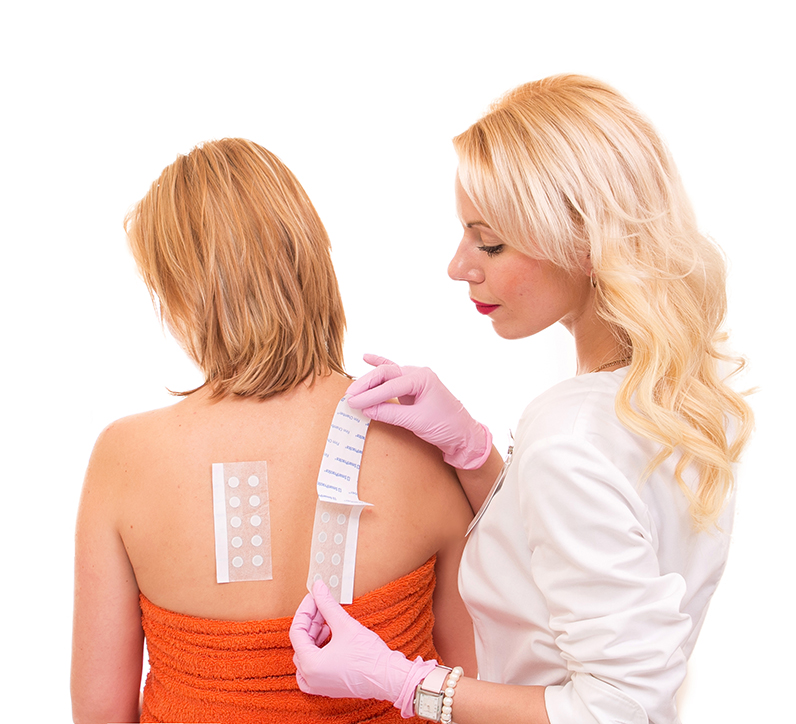Allergies. Tests for allergens
It is difficult to identify the specific allergen that triggers the body's counter-reaction (allergy) through everyday observation - most products, substances, even the air we breathe, are a combination of allergens. Allergen tests help to identify the specific substances that cause allergies. The allergist individually determines the most appropriate test for the patient: prick test, scarification test, intracutaneous test, application test (and photo-application test), blood tests.
How quickly are allergen test results known?
In most cases, allergen (allergy) test results can be seen within 15-20 minutes after the test is performed. Depending on the workload of the laboratory, the results of blood tests for allergens are available within a day to a few days.
Application tests for specific contact allergens
The Conatactalergen Application Test is completely painless and does not traumatize the patient's skin. The dermatologist selects a panel of specific allergens (haptens), these chemicals are placed in small aluminium containers and attached to the skin of the back with a special patch. After two days, the patch is removed and the results are evaluated. After 2, 5 or 7 days, a further visit to the dermatologist is recommended to exclude the possibility of late-type allergic contact dermatitis.
The most commonly diagnosed contact allergens are:
- nickel;
- medicines;
- peruvian balsam;
- formaldehyde;
- latex;
- various plant extracts;
- nail varnishes, hair dyes and styling products.

Contact allergen tests should be performed on patients if:
- suspected allergic contact dermatitis;
- other skin diseases that increase the sensitivity of the skin to a contact allergen (atopic dermatitis, seborrhoeic dermatitis, psoriasis, dyshidrotic dermatitis);
- chronic eczema with no identified cause;
- intolerance to a medicine or a history of anaphylaxis or allergic skin reaction to a medicine.
The application test of specific contact allergens is not performed:
- if the patient has an active inflammatory process on the skin of the back;
- if antihistamine or hormonal steroid preparations are used 4 days before the test;
- if the patient has been sunbathing for 7-10 days before the test;
- during pregnancy and lactation.
Detection of specific IgE antibodies in blood
These tests identify the antibodies responsible for the specific allergies. The specific IgE antibodies in the blood identify the specific group of allergic agents. A blood sample is taken from a vein to perform the tests.
